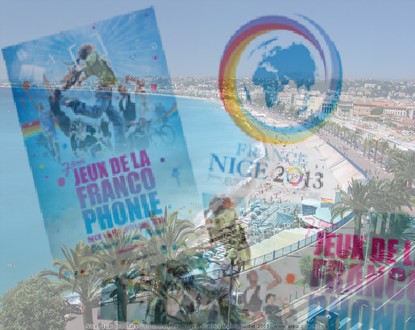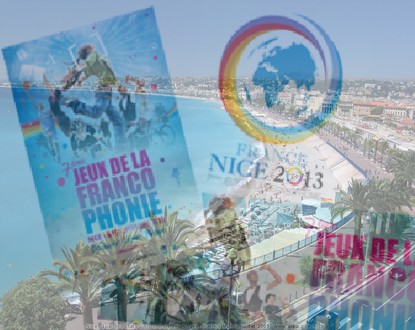It is quite possible that Jean-Cristophe Picard’s criticisms are accurate, even if they seem very harsh. That being said, the main objective of an international competition of this scale is to “promote peace” and “facilitate the rapprochement between Francophone countries,” as the author of this statement himself reminds us.
 Ultimately, to allow hundreds, thousands of young people to gain a life experience that will always remain in their memory and will be a valuable asset in their education. Thus, the few malfunctions (sometimes inevitable given the complexity of the task) of the organization seem to be of little importance.
Ultimately, to allow hundreds, thousands of young people to gain a life experience that will always remain in their memory and will be a valuable asset in their education. Thus, the few malfunctions (sometimes inevitable given the complexity of the task) of the organization seem to be of little importance.
Fortunately, it is not the delayed buses that will be remembered by the young people who came to Nice, but rather the magnificent encounters with other young people from sometimes vastly different backgrounds.
As for the various exploits of politicians seeking notoriety, please, Mr. Picard, let’s move on to something more interesting. The Minister gives us the impression of being more interested in her hairstyle than anything else, and our local duo, as you well know, is capable of going “straight to the point” even in their “fantasies.”
Still, it’s a shame to have forgotten to congratulate the 1,500 volunteers, primarily from Nice and the surrounding area, who did their best to ensure these Games took place in every way possible…
The celebration was beautiful, and that is what will be remembered.
Statement from Jean-Christophe Picard
The 7th Francophonie Games concluded on September 15, 2013. With a budget of 10 million euros (2.3 million of which was covered by the city of Nice and the metropolis), the Games hosted 2,749 participants from 54 countries.
By general consensus, the organization did not live up to the event. Although the host city had four years to prepare, it seems things were left until the last minute. “Five months before the opening of the Games, I just note that we will need to boost a few people,” declared Bernard Maccario, director-general of the National Committee of Francophonie Games, on April 9th after the dismissal of his predecessor.
David Kalfa, a special correspondent in Nice for Radio France International, offers a harsh assessment: “This 7th edition did not always shine for its organization, at least regarding the sporting events. Erroneous results, fluctuating competition schedules, disrupted meeting calendars, confusion among winning countries, wrong medals awarded, mistakes on the cycling race route… Not to mention the visa issues not granted to some African athletes. There were many mishaps over ten days.”
Michel de Chadarévian, who served as the national coordinator of the Francophonie Games in Beirut in 2009, drives the point home: “The Nice Games did not at all meet our expectations, especially from an organizational perspective. […] I think the motivation was lacking in the organization, I compare it with Beirut. The CNJF of Beirut was on high alert from its appointment; its offices at the UNESCO palace did not close their doors 24/7 without exception. In Nice, the offices closed at 5 PM, as if it were normal times and the Games were not taking place in the city.”
Faced with the evident issues, the National Committee of the Francophonie Games in Nice does not seek to deny it: “Some difficulties must be pointed out regarding transportation, on-site hygiene, catering for athletes and artists, information circulation, and public mobilization on the different sites, often due to lack of information.”
Adding to this erratic organization is the inappropriate behavior of certain elected officials, such as Christian Estrosi and Éric Ciotti, who tried to start a pointless controversy over rapper Kery James’s performance at the opening ceremony. This groundless uproar was least appropriate, knowing that the stated objectives of the Francophonie Games are to “promote peace” and “facilitate the rapprochement between Francophone countries”!
To top it all off, these costly games did not meet expectations. According to the Secretary of State for Francophonie, Yamina Benguigui, “there was not a large audience and no media coverage.”
Moreover, one figure causes some discomfort: 34 participants, mostly from Africa, disappeared without a trace, probably to escape the hardship of their countries. The poet Juvenal said that people need bread and circuses. Today, we must ask the question: is it reasonable to continue offering games to people who need bread?
Jean-Christophe Picard, President of PRG 06



